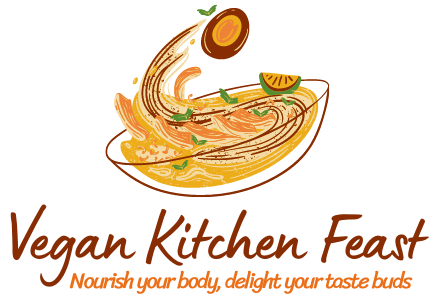
Understanding the essence of a vegan cook begins with recognizing what sets this culinary practice apart. At its core, vegan cooking involves creating meals that exclude all forms of animal products. This means no meat, dairy, eggs, or honey, for starters.
But it’s not just about subtraction. A vegan cook thrives on plant-based ingredients, discovering inventive ways to bring out the textured flavors of vegetables, fruits, grains, legumes, nuts, and seeds. The culinary palette expands rather than contracts, as commonly misunderstood.
Key skills for a vegan cook include deep knowledge of plant-based nutrition to ensure well-rounded meals, proficiency in alternative cooking techniques, and mastery of substituting common non-vegan ingredients with vegan options without compromising taste or texture.
Adept at navigating dietary restrictions, a vegan cook must be savvy with food labels and mindful of cross-contamination to respect the purity of vegan dishes. It’s an expertise in recognizing how every component of a dish fits into the vegan ethos.
The passion and creativity in vegan cooking also mean constantly educating oneself about the latest dairy-free cheeses, egg alternatives, or the most sustainable sources of vegan protein. It’s a pursuit of innovation in a landscape of evolving food technologies and trends.
The Daily Life of a Vegan Cook
Imagine preparing a meal without a trace of animal-derived ingredients. As a vegan cook, this is my everyday reality. Each day introduces a new adventure in selecting plant-based substitutes, experimenting with diverse flavors, and offering my diners a taste of ethical cuisine.
Consistency is key in my routine. I adhere to a strict inventory of vegan pantry staples, ensuring fresh fruits, vegetables, grains, and legumes are always at my disposal. I tackle the challenge of replicating traditionally non-vegan dishes, such as cheese and meat replacements, through nut-based or soy-derived alternatives.
It’s not all smooth sailing; many diners have questions about protein content or flavor profiles. I welcome this curiosity and use it as an opportunity to educate them about the richness and variety in vegan dishes. Misconceptions are dispelled through each flavorful bite of my carefully crafted meals.
My commitment to diversity in cuisine is unwavering. Whether I’m preparing a hearty Italian pasta sans Parmesan or a bold Indian curry bursting with spices, I strive to celebrate cultural dishes while honoring my vegan ethos.
As this section concludes, remember that the impact of vegan cooking extends far beyond the flavors. My craft supports a healthier lifestyle and is part of a larger dialogue regarding sustainable food practices. Next, I’ll share how these elements contribute to overall well-being and the health of our planet.
Vegan cooking isn’t just about preparing plant-based meals; it has profound implications for both personal health and the planet. When I talk about the impact of vegan cooking, I’m referring to a ripple effect of benefits that extend far beyond the kitchen.
How to Become a Vegan Cook: Education and Career Pathways
The journey to becoming a vegan cook can start at any point. You don’t need a fancy degree to begin; passion and commitment are the primary ingredients. But if you’re serious about making a career out of vegan cooking, exploring educational opportunities can enhance your skills and credibility.
Many aspiring vegan cooks start with self-education. Online resources, cookbooks, and community workshops provide rich learning grounds. Formal education, such as culinary school with a focus on plant-based nutrition, can offer structured training and recognized qualifications.
The career landscape for vegan cooks is diverse. Restaurants, food blogs, cooking classes, and private chef services are just the tip of the iceberg. Niche markets, like vegan baking or raw food coaching, can also provide unique opportunities.
Building a personal brand is crucial. Start by sharing your cooking adventures on social media or a personal blog. Engage with the vegan community. Networking can lead to collaborations and job prospects. Remember, your brand represents your story, ethics, and cooking style.
The key takeaway is that becoming a vegan cook is an attainable goal. With dedication and a willingness to continuously learn, you can craft a fulfilling career around the vegan lifestyle that is rewarding both personally and professionally.
